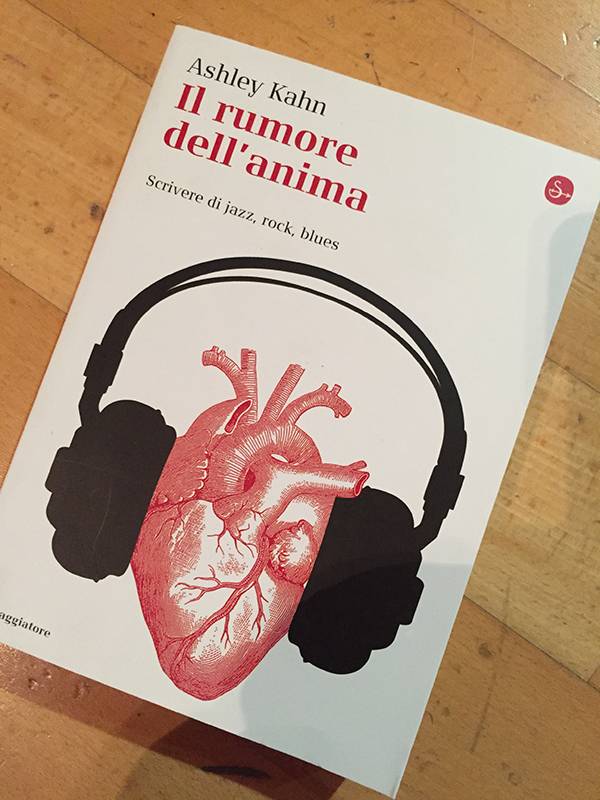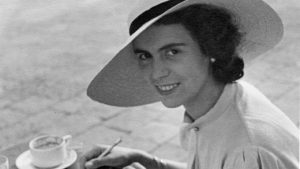A few months ago, during the presentation of his latest book (“Il rumore dell’anima, scrivere di jazz, rock, blues”, by Il Saggiatore), Ashley Kahn met his readers and fans at the “Casa del Jazz” of Rome. It was a good time for anecdotes, personal stories, curious things that changed the course of the music (and the writer was a direct witness!). We had the opportunity to speak directly with who is considered one of living “sources” of music (especially for jazz).
From an encounter like that one, you could draw innumerable ideas to deepen topics in the most varied directions. However, one of his phrases in particular remained impressed to me! He said to consider his work completed only when one of his readers, guided by the writing, decides to put aside the book or the article and going to find out more about the artist mentioned, listening to his music or going to one of his concerts.
On the other hand, it is worth remembering that music and creativity, according to Ashley Kahn, can not be rationally governed; they can only be indulged, like the current.
By letting us drag from the river, we asked Ashley Kahn to develop some concepts from “Il rumore del’anima” for Just Baked readers.
This stimulating chat has come out: it is full of reflections on our way of life and, above all, about our telling about music.
Let’s start with the book’s cover: a white background, a big red heart, with arteries, veins and ventricles well visible, surrounded by a black DJ headphone. Is “Il rumore dell’anima” that natural instinct necessary to write about music starting from experience and setting aside the theory?
«What experience, which theory? I think by this question you are asking about focusing more on the idea of interacting with the music itself, rather than some academic notion of where and how the music came to be. If that is the case, then absolutely yes. I find that “theory” can often be a a dis-tracting filter for criticism and personal opinion.
A friend of mine who used to work at Rolling Stone magazine once wrote that the best music reporting honestly appraises the music for what it is, not what the writer wants it to be.
This is what I tell my students at New York University when they write about music: use your ears and heart first, then bring in your mind.»
Falling in love with Italy
Your book begins with this phrase: “Music is a vocation”. What does this mean for you?
«That I have been able to make a profession out of a lifelong passion, and that I thank my good fortune at being able to do this, every morning of every day.»
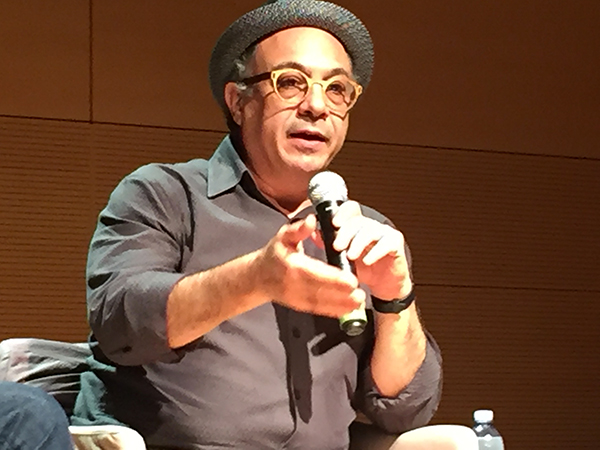
“Il rumore dell’anima” is not the translation of a book already published in other countries; in fact the Italian version is the first version; can you tell us why this choice and the link with our country?
«I have also been fortunate to find an editorial home here in Italy since my book on Miles Davis’s famous album Kind of Blue was first published by Il Saggiatore almost fifteen years ago, and the man in charge there – Luca Formenton – has been my guide, business partner, professional consult-ant, psychologist, collaborator, and friend.
Because of him, and the support of his staff over the years, Italy became an open door: I have connected with the jazz and music journalism community. I have spoken at universities and participated at music festivals and conferences, from Roma and Milano, to Venezia, Perugia, Bari, and small, beautiful towns like Locorotondo and Cumiana and Feltre and Sassari.
I have fallen in love with Italy, its music and culture, and in so many ways, it has returned the compliment.
Il Saggiatore decided to be the only publisher – so far! – to publish an anthology of my writing since high school. That’s one more example of a continuing romance that I pray will never end.»
Miles Davis & John Coltrane
It’s 1957, Miles Davis punches John Coltrane in the backstage of the Café Bohemia in New York: Thelonious Monk notices everything and does not miss the chance to hire Coltrane as a saxophonist in his band. Can we say that Coltrane really became Coltrane on that occasion?
This and other episodes of which you speak in your book have helped to change the course of the history of music.
Nowadays, for those who write about it, it is easier thanks to the internet but how could both bloggers and writers select reliable and authoritative sources for music?
«In my opinion, Coltrane became Coltrane when he faced all his fears and misgivings about himself, and joined Miles Davis’s band and left Philadelphia in 1955.
He took a chance and no matter what happened after that between him and Miles, Coltrane appreciated and respected the opportunity that he received from the man he never stopped calling “The Teacher”.
As to your other question, about determining the veracity of sources when writing about music history, I think the internet is not the problem; I think there has always been a degree of laziness or simply inexperience in figuring out what to believe and what not to believe when it comes to researching music history.
My attitude is always try and get as close to the subject as possible – it doesn’t matter if the focus is on Miles Davis or the Beatles or Kendrick Lamar. First find their own words – interviews, autobiographies – in reliable sources, then go for the words of musicians or music people who worked with them and knew them. Then consult journalists who were writing at the same time those musicians were active.
And THEN use your intellect and good sense of critical judgment and do not use blogs or Wikipedia or any online sources as the final word.
Did Miles actually punch John Coltrane in the stomach? It was Miles who said that, but in fact, Miles was a very short guy and Coltrane was bigger. Also Miles loved telling stories that would surprise and shake people up. He also said once that he and Thelonious Monk had fought – and Monk was bigger and heavier than Coltrane. Monk was reported to have said that he would have crushed the trumpeter if that ever happened.
So you have to ask yourself, how much do I believe here, and how much is simply a story?»
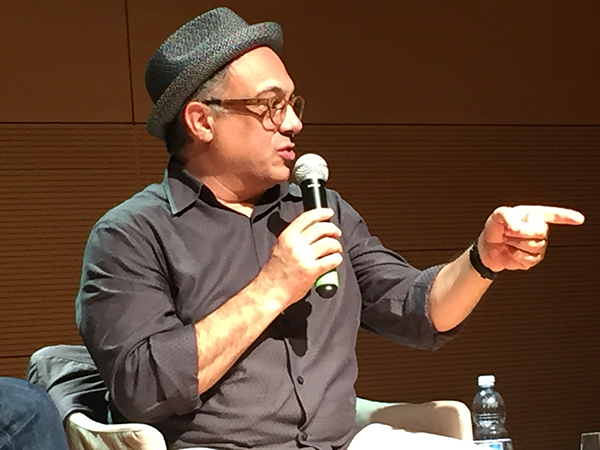
Among the traditional musical media today, radio is still one of the most important tools, even if in a completely new way compared to the past, thanks to the internet. What do you think are the characteristics that a radio format should have today and which music and in-depth pro-grams you would like to recommend?
«Nowadays we use the word “playlist” – and often it’s some algorithm that’s tracking what someone likes and then builds a personal playlist for the user (like Pandora), or uses other parameters to create a shared playlist for a larger community (like “Discover Weekly” or “RapCaviar” on Spotify.) It’s more informed and digital than the general radio idea, but it’s still the same idea: “I know you like this style or genre, now let me show you some other possibilities…”
People still love to be surprised and hear new artists and songs and get excited all over again – and they like to have a guide who knows the scene, a musical Vergil, an informed deejay (in the old def-inition of “d.j.”) like in the old days o radio.
You want to hear some informed deejays online? Try NTS from London – amazing shows and really intelligent hosts.»
Collaboration and respect
Paul Simon’s Graceland, an album that has sold over 14 million copies, was born thanks to South African musicians. This album was also a cultural and social “case”. A couple of years ago Paul Simon called a young Italian electronic music producer, Cristiano Crisci a.k.a. Clap Clap, for his latest album “Stranger to Stranger” impressed by his musical sensibility.
Is collaboration between artists, even of the different backgrounds and ages, the concrete sign of an evolving musical scene?
«Collaboration between musicians is as glorious as it is inevitable.
Music hates, and cannot survive in a vacuum.
It needs collaboration and fresh input and new ideas all the time, like we need the next breath of air. That is music’s natural course, like water finds the lowest path, like it flows from the hills to the sea. That is what I have learned from decades of following the river.»
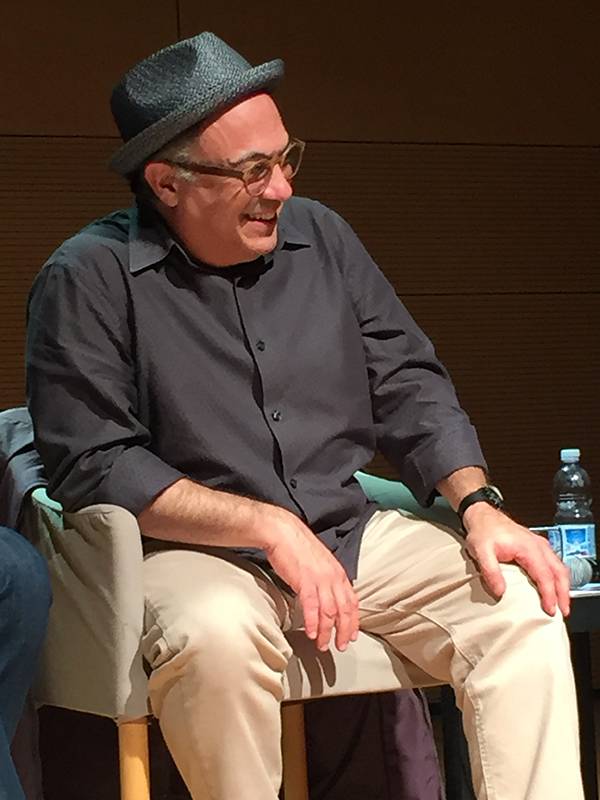
In your meeting with the audience at Rome’s Casa del Jazz (on the your book presentation) you recalled your experience following the artists for several years and on more than one occasion emerges the key concept of “respect”. Please, tell us about “respect” for all those involved in this adventure that is called music and that today seems to systematically fail in relationships.
«Well, first of all, let’s try and remain positive and more optimistic shall we? I don’t see any “systematic failure” happening in the music scene, or among music journalist and reportage.
If anything, I see more and more people involved in music media coverage that supports and helps celebrate music in all its styles and genres and subgenres.
If anything is challenging and gets in the way, it could be that online, because anyone can post anything at anytime, there is simply too much writing about music – and too much music – to get through.
There used to a concentrated focus on music information – a limited number of music magazines, TV shows, and radio stations supplying all we could know; it was easier then, but also more frustrating and crowded. Anything new or exciting had to fight their way into that small room to get attention.
The respect I wrote about in “Il rumore dell’anima” is more a timeless issue: how should anyone approach music that is new and unfamiliar or in a style they don’t know, or perhaps have a prejudice against?
My answer is that any musician making music – even the most commercial, pop-oriented players or songwriters looking for a hit – have dedicated time and energy to creating something that deserves a listen free of judgment.
In fact, I firmly believe that the more we learn to listen and hold back on the need to express an opinion, the more we will learn.
This goes beyond music by the way – in all relationships, personal, professional, even political – there is a benefit to hearing and thinking and being respectful, before talking.
Yet look at how politics is discussed on TV – well, in America for certain. Everyone’s talking over each other and yelling; who’s actually listening.
The great producer Quincy Jones says that there is a reason God gave us each two ears and one mouth. Because we should listen twice as much as we talk. Amen.»
Hugh Masekela and Frank Zappa
For a few years you were the tour manager of the African group Ladysmith Black Mambazo. From your book’s story it emerges that this experience during the last years before the end of apartheid has profoundly affected you.
Recently a great musician has disappeared whose name is Hugh Masekela who was a symbol of the fight against apartheid and an icon of African music and jazz in general.
What do you think about the fact that in the contemporary scene symbolic figures like Masekela are now endangered?
«How is – or was – Hugh Masekela’s symbolic role endangered? Do you mean his legacy? I don’t see that as being in danger at all. Believe Hugh was extremely proud of the music he created, of the im-pact he made on the world, his role in the Graceland explosion of the 1980s playing with Paul Simon, and his own career which he pursued until cancer took him earlier this year.
He was celebrated when he was alive, and he was saluted when he died, and he will be remembered by hundreds of thousands of people who saw him perform and heard his music one way or another.
I know I will never forget him. I remember him once explaining to me why, at the height of apartheid when things were so brutal against black South Africans, their music was joyous and happy. “Because we have already won”, he said. And he was right.»
Have you ever met Frank Zappa? What do you think about the role he played in the history of music and what could be considered his legacy?
«I wish I had. I am a huge fan of his music, his spirit, his sense of humor AND his autobiography. As far as I’m concerned, it’s still one of the most intelligent and warm-hearted books by a musician I have ever read – and he was supposed to be a curmudgeon.
I am going listen to his wonderful album Hot Rats after answering these questions. Thanks for bringing him up.»
Music education and creative expression
Let’s talk about jazz. Today this scene is very lively and revolves around two city-laboratories for new trends, Los Angeles and London: on the west coast jazz is played and contaminated with hip-hop while in the City the caribbean and latin sounds are mixing with the return of British modal jazz.
Is there a risk that both such movements become fashionable and lose their identities quickly?
«I am intensely unconcerned about the idea of what’s fashionable or has an identity or doesn’t. This question is all about how music is grouped into this geographical area or another.
Music always mixes everywhere, all the time.
There is no such thing as pure music, period. Every sound and style is a fusion. I must say the use of the word “contaminated” implies an area of music criticism and a way of thinking of music that I prefer to stay away from, thank you.»
Among the many artists you met and talk about in the book I was struck by the story of Alice Coltrane, an extraordinary character with a profound spirituality.
Last year David Byrne’s label, Luaka Bop, released a collection called The Ecstatic Music of Alice Coltrane Turiyasangitananda curated among others by Alice’s nephew, the hip-hop producer and musician from L.A. Steven Ellison aka Flying Lotus.
How do you see this parable of the Coltrane family, from the beginning of free jazz to the abstract electronic hip-hop of Fly-Lo?
«It’s well documented that the McLeod family from Detroit is very musical; so are many other families. If there’s a lesson in their story, it’s that there is an extreme value in early music education and creative expression, that it should begin in the home and among relatives, and continue in schools and other aspects of all children’s experience.
The secret of the McLeod family was much like many other Detroit families – the parents supported their children when they wanted to learn music. Some came to it later than others – saxophonist Ravi Coltrane started as a teenager, and is now a leading musician here in New York City; his older sister Michelle is a singer based in Los Angeles. They also benefited from their mother’s musical dedication, as well as her spiritual focus.
That’s the parable for me.»
Ashley Kahn is a Grammy-winning author, educator, music journalist, and concert producer. A professor of music history and criticism at NYU who lectures at other institutions as well, his books include cowriting Carlos Santana’s memoirs, The Universal Tone, and other titles such as A Love Supreme: The Story of John Coltrane’s Signature Album, Kind of Blue: The Making of the Miles Davis Masterpiece. Kahn’s writing earned him a Grammy Award for album notes (John Coltrane’s Offering) in 2014, as well as generating two Grammy nominations, three ASCAP/Deems Taylor Awards, and two Book of the Year distinctions from the Jazz Journalists Association.
Most recently, he has spoken, presented, and conducted interviews at a variety of festivals and conferences including: SXSW, CMJ, New Orleans Jazz & Heritage Festival, Clark University, Umbria Jazz Festival, North Sea Jazz Festival, Monterey Jazz Festival, Barcelona Jazz Festival, Berklee School of Music, and other universities, conferences and festivals. Kahn’s byline appears in such publications as Rolling Stone, Mojo and The Wall Street Journal and his voice is often heard on Na-tional Public Radio’s “Morning Edition”.
During a thirty-year career in the music business, Kahn has helped produced countless concerts, tours and festivals including a ten-year stint as tour manager for a multitude of music groups, including: Paul Simon, Peter Gabriel, Ladysmith Black Mambazo, Debbie Harry & the Jazz Passen-gers and Britney Spears. He continues to work on a wide range of of projects, including the annual Rock & Roll Hall of Fame induction program and ceremony, a Miles Davis documentary, tribute concerts, various panels and speaking engagements.
Bio Source: University Of The Pacific
Ashley Kahn’s last book “Il rumore dell’anima: scrivere di jazz, rock, blues” (2017) is published in Italy by Il Saggiatore.



